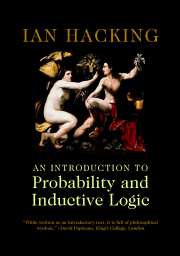
My problem with creationism
Submitted by Ophios on April 25, 2007 - 4:26pm.I have this irk with creationism. This very specific problem.
While creationism itself is laughable.
One part always got me. It's never a creation debate, it's an anti-evolution debate.
I have never seen a debate about creationism that ignores evolution. Someone always has to drag it in.
This is where evolution gets points in my book, you can have a discussion of evolution and creationism can never be brought up.
But when you talk about creationism's flaws.
"Well, evolution can't explain..."
"Evolution doesn't make since either because..."
That's what sad about creationism. Outside of the (Other) logically flawed arguments, they only have a negative argument working for them.
- Ophios's blog
- Login to post comments
- Read more

Mr. Bear weighs in
Submitted by g0at on April 25, 2007 - 3:18pm.F1rst of, My spelloring is horable. Mr. Bear
- Login to post comments

"God" the Ironworker and why the freewill defense fails. Version 2.0
Submitted by todangst on April 25, 2007 - 2:52am.If there is an omnipotent, omniscient creator, then this creator is perfectly responsible for his creation, as any and all potential or actual existents would only exist contingent upon the fiat of this omnipotent, omniscient creator. Since this would include the sum total of all possible influences on any outcome, it necessarily follows that this creator is ultimately responsible for every outcome. Therefore, the free will defense for the problem of evil must fail.
Do any theologians hold to this view?
Yeah. A few minor, relatively unknown theologians hold to it. Two that I know of go by the names Thomas Aquinas and Martin Luther.

four theistic fallacies that flood youtube by g0at
Submitted by g0at on April 24, 2007 - 9:18pm.This video talks about four common fallacies that theists constantly keep posting up on the comment boxes. I don't use dawkins to make any of my points

Discussions with Theists part 1
Submitted by BenfromCanada on April 24, 2007 - 8:43am.I've been talking to theists lately. Mostly on GodTube, but on other places as well. Here's a conversation I had with a particular GodTuber, mikepl82.
It started out with this comment on the Christian response to "The God Who Wasn't There". (My name on GodTube is nothingman)
You could have used this part to insert some more convincing arguments. This is nothing but a plea to emotion. That's a logical fallacy. If you're trying to convince people, fallacies are counterintuitive.
I got a few responses, but the one that yielded the most discussion was this one:
I think is is important to remember that only God can open a hard heart. God works through many ways and this may in fact be one of them. If you think YOUR intellectual arguments are what turn people to God, have you not given the glory to yourself and forgotten that God is the only one who can true make the sinner see.

karma
Submitted by Dissident1 on April 23, 2007 - 10:15pm.What goes around comes around. Blah blah blah blah blah.
The idea of karma presents itself as a method of inviting "good" into ones life by expelling "good" into the cosmic void. It takes cosmic forces to gather your "good" and "bad", but whatever plant you raise will present you with a yield or harvest of earned rewards.
Whatever.
If there truly was a way to gain a cosmic reward, for good or ill, it would present itself most assuredly in the immediate and horrible deaths of practically everybody on earth! Nearly everyone has done something that would cause the flow of "bad karma", inviting sure disaster.

Pascal's Wager Version 2.0
Submitted by todangst on April 23, 2007 - 4:31pm.Pascal's Gambit or Pascal's Wager, is a rather famous rhetorical ploy. It is not an argument for 'god', instead, it attempts to outline the pragmatic benefits of believing in a god. As such, it is intriguing because it is intended to gain believers without having to solve the impossible problem of offering proof of God's existence. Therefore, Pascal's wager is alluring in its simplicity. It's really an attack on doubt, for it states that the requirement of certainty in belief is a false one. Either 'God' exists or 'he' does not. If 'he' exists and you are a beliver, you "win". If 'he' does not exist and you believe, nothing is lost. However, If 'he' does exist and you are not a believer, you lose out on eternal life. Of the four possible permutations:
Belief and God exists = believer is saved
Non Belief and God exists = non believer suffers hellfire
Belief and God does not exist = believer does not suffer more than non believer
Non Belief and God does not exist = non believer does as well as believer
...there is no place where a non believer benefits over a believer and in no case does belief ever bring harm. Therefore, logically, one should be a believer in god, if for no other reason than that atheism cannot ever benefit a person regarding the afterlife.

Why the "Problem of Induction" really isn't a problem. (And why theists don't even get it right)
Submitted by todangst on April 22, 2007 - 6:00pm.What is Inductive Logic?

Gregory Lopez and Chris Smith
We can define any type of logic as a formal a priori system (axiomatic) that is usually employed in reasoning. In general, if we feed in true propositions, and follow the rules of the particular system, the logic will crank out true conclusions.
We can define 'induction" as a thought process that involves moving from particular observations of real world phenomena to general rules about all similar types of phenomena (a posteriori). We hold that these rules that we generate are probably, but not certainly, true, because such claims are not tautologies.



